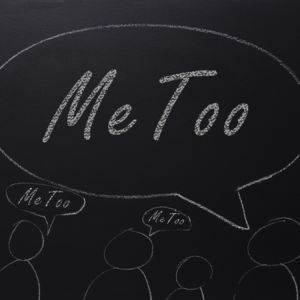Editor’s Note: For an alternative viewpoint, please see: Point: #MeToo Isn’t the Right Answer to Sexual Misconduct
From Congress to Hollywood, 42 and counting men in power have been brought down by sexual assault allegations since October — most recently a failed Republican Senate candidate in deep-red Alabama.
Naturally, this has people asking: Is this a watershed moment?
Sexual assault is dominating headlines because a campaign called the #MeToo movement has been dominating social media for more than two months (a century in internet years). The issue has been so pervasive that every woman I know, myself included, has been saying “finally” — even when it brings up traumatic memories they’d rather not recall.
But this movement is much older than hashtags.
The Me Too campaign was started by Tarana Burke a decade ago. Many years before her came Rosa Parks — who was a sexual assault investigatetor before she rode that famous bus. And before Parks came generations of black women who resisted the commodification of their bodies under slavery.
That’s more than 200 years of campaigning against sexual violence in the making.
And yet just over a year ago, a man accused of sexual assault by 19 women was elected president and still sits in the Oval Office. This spring, reports of sexual assault in the U.S. military reached record highs. And this month, hundreds of thousands of Alabamians cast their votes for a Senate candidate accused of sexually assaulting teenage girls.
Given that history — and these headlines — why has it taken so long for the public to get on board with the fact that sexual assault happens all the time, in every industry?
Anita Hill, famous for her sexual harassment case against a still-serving Supreme Court justice, spelled it out for the New Yorker recently: In order for a woman to be believed in these cases, she said, “they have to fit a narrative that the public will buy.”
Often it takes someone conventionally beautiful. Someone powerful. And even better, someone famous, to have a good shot at being believed. Someone like Angelina Jolie or Gwyneth Paltrow, who helped bury a disgraced film producer in the early days of the latest groundswell.
All the same, what’s special about this moment is that some very powerful people are starting to be held accountable. A resignation here and a canceled TV show there is truly something to write home about.
I don’t know if this is a watershed moment, or how long the momentum from the #MeToo campaign will last. But I do know that recounting your story can be traumatizing — and that many survivors will become burnt out.
And what to do about women who don’t have the advantages Anita Hill laid out? Or whose assailants aren’t well known public figures?
Maybe there’s another way.
Imagine if the burden to combat sexual assault didn’t have to fall on any of these brave women — from celebrities to interns — pleading with the public to listen to stories they never wanted to have to recall.
Imagine instead a system where institutions do the heavy lifting to prevent sexual assault from occurring in the first place.
I’m talking about high schools and colleges prioritizing sexual violence prevention programs in their curriculum, rather than cutting funding for those programs. I’m talking about protections for low-wage, domestic and tipped workers who experience sexual harassment at nearly double the rate of other women.
I’m talking about industries setting standards like a clearly outlined reporting process that doesn’t put an undue burden on the reporter, establishing zero-tolerance policies for retaliation, and creating leadership structures that set cultural norms against harassment and assault.
And putting more women in positions of power wouldn’t hurt either.
In the meantime, we owe a great deal of gratitude to survivors like Tarana Burke. But my hope is that one day we won’t need a #MeToo campaign — the message instead will be Not One More.

